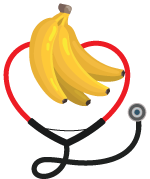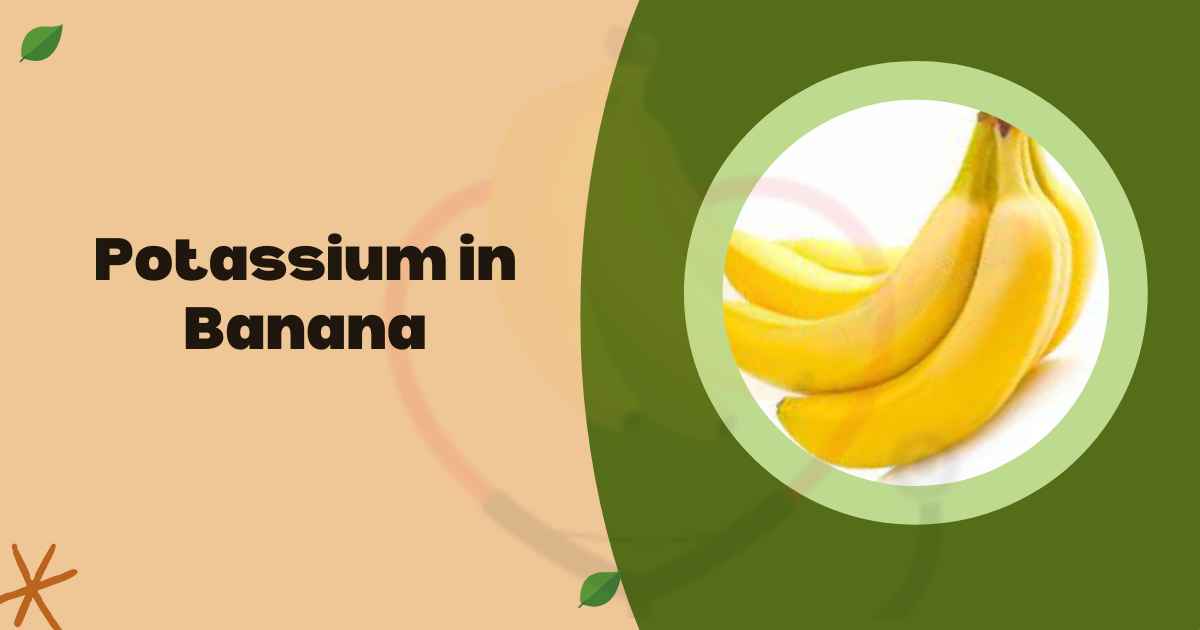Written By Sania Malik
Potassium is one of the most abundant minerals found in bananas. In fact, bananas are often cited as a great source of this vital nutrient. [1]
Potassium in banana is essential for maintaining healthy blood pressure levels and plays a key role in muscle and nerve function.
Why is potassium important?
Potassium is vital for maintaining several body functions, including nerve function, muscle contractions, and fluid balance.
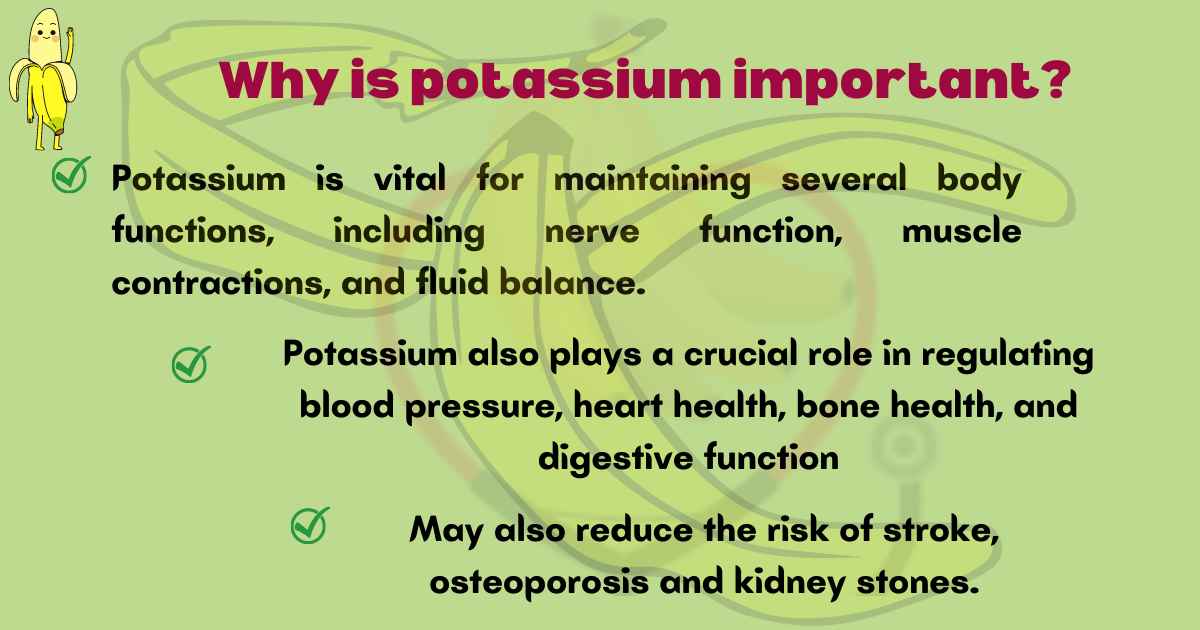
Potassium also plays a crucial role in regulating blood pressure, heart health, bone health, and digestive function. [2]
A diet high in potassium may also reduce the risk of stroke, osteoporosis and kidney stones.
Recommended daily intake of potassium
The recommended daily intake of potassium varies depending on age, sex, and overall health status. Generally, adults should aim to consume between 2,500-3,000 mg of potassium per day. However, individuals with certain health conditions, such as kidney disease, may require a lower intake.
How much potassium is in a banana?
A medium-sized banana contains approximately 400-450 mg of potassium. This makes bananas an excellent source of potassium, especially for individuals who may not consume enough potassium-rich foods in their diet. [3]
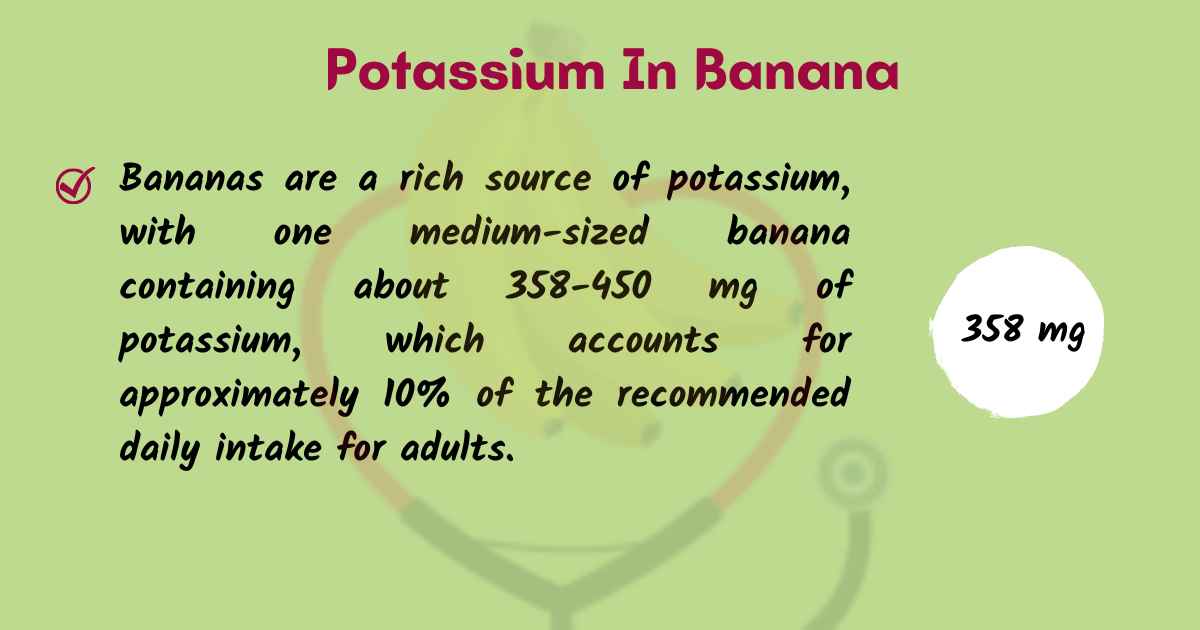
Other sources of potassium
Bananas are not the only source of potassium. Other potassium-rich foods include:
- Sweet potatoes
- Spinach
- Avocado
- Salmon
- Beans
- Yogurt
Nutritional Value and Benefits
Bananas are a rich source of potassium, with one medium-sized banana containing about 400-450 mg of potassium, which accounts for approximately 10% of the recommended daily intake for adults.
Here are some of the key benefits of consuming potassium in banana:
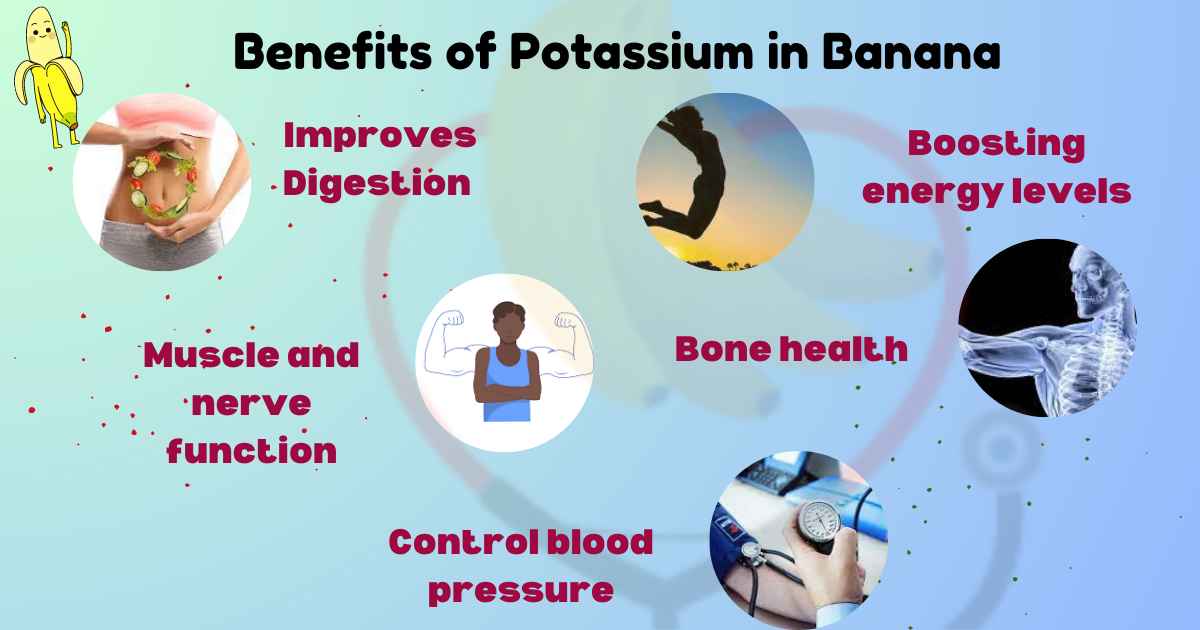
1: Regulating blood pressure
Potassium helps lower blood pressure by counteracting the effects of sodium, relaxing the blood vessels, and reducing the risk of hypertension and cardiovascular disease. [4]
2: Enhancing muscle and nerve function
Potassium supports the normal functioning of muscles and nerves, including the heart muscle, by facilitating the communication between cells and regulating the electric charges across cell membranes. [5]
3: Supporting bone health
Potassium may help reduce the risk of osteoporosis by buffering the acidic compounds that can leach calcium from bones and promoting the retention of bone minerals. [6]
4: Boosting energy levels
Potassium plays a role in the metabolism of carbohydrates and the production of ATP, the primary energy currency of cells, which can help improve stamina and endurance. [7]
5: Aiding digestion
The fiber and prebiotics in bananas can help promote healthy digestion and alleviate constipation, while the potassium content can help balance the electrolyte levels in the gut. [8]
Bananas are an excellent source of potassium and provide several health benefits. Potassium is essential for maintaining proper fluid balance, muscle function, and nerve function in the body. A diet high in potassium may also reduce the risk of several health conditions, including high blood pressure, heart disease, osteoporosis, and kidney stones.
FAQs
Can consuming too many bananas lead to hyperkalemia?
Consuming too many bananas can contribute to hyperkalemia in individuals with kidney disease or those taking certain medications.
Are there any other health benefits of potassium?
Yes, potassium is also important for regulating fluid balance, nerve function, and digestive function in the body.
How much potassium do I need per day?
The recommended daily intake of potassium varies depending on age, sex, and overall health status. Generally, adults should aim to consume between 2,500-3,000 mg of potassium per day.
Can potassium supplements be harmful?
Yes, taking too much potassium in supplement form can be harmful, especially for individuals with kidney disease or those taking certain medications.
Are there any foods that are high in both potassium and sodium?
Yes, some foods that are high in both potassium and sodium include canned vegetables, processed meats, and fast food.
